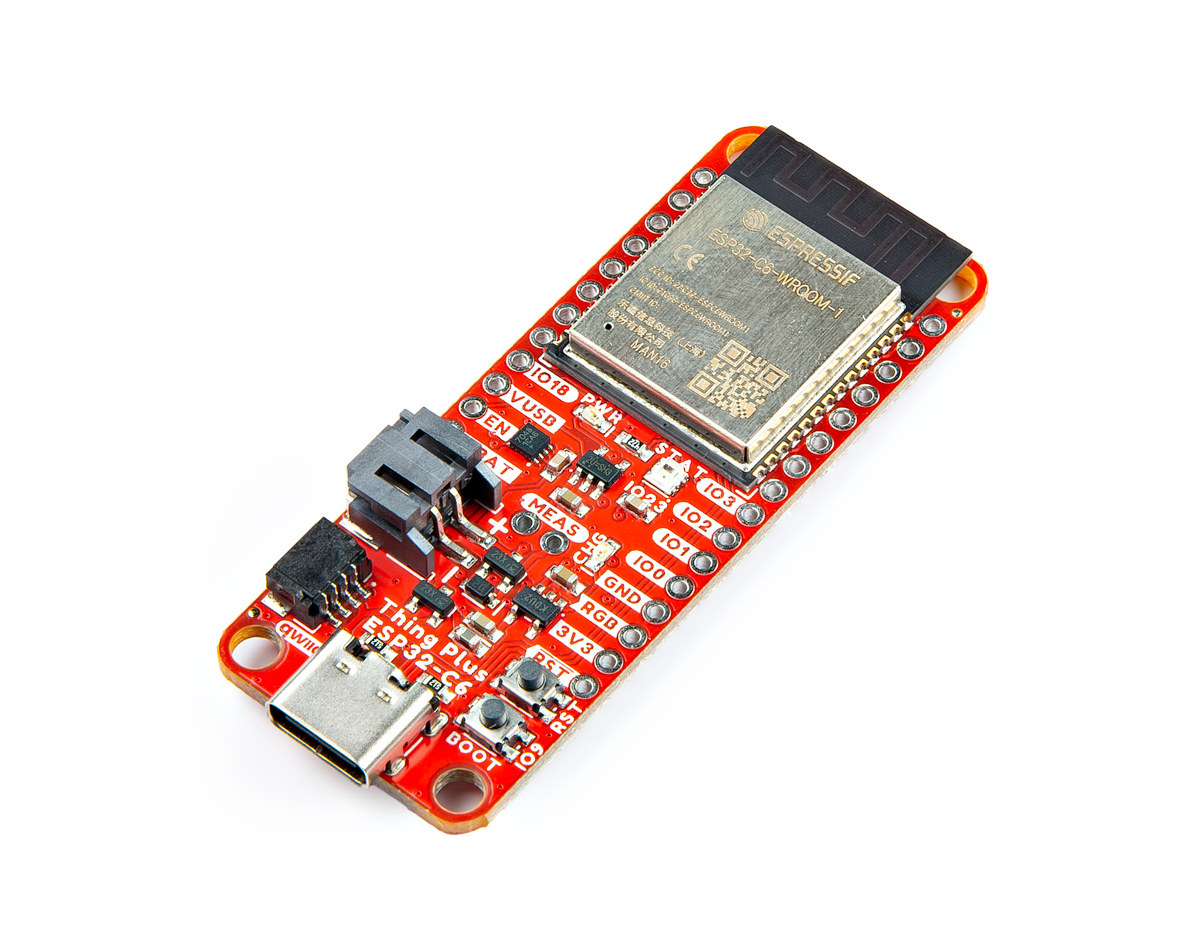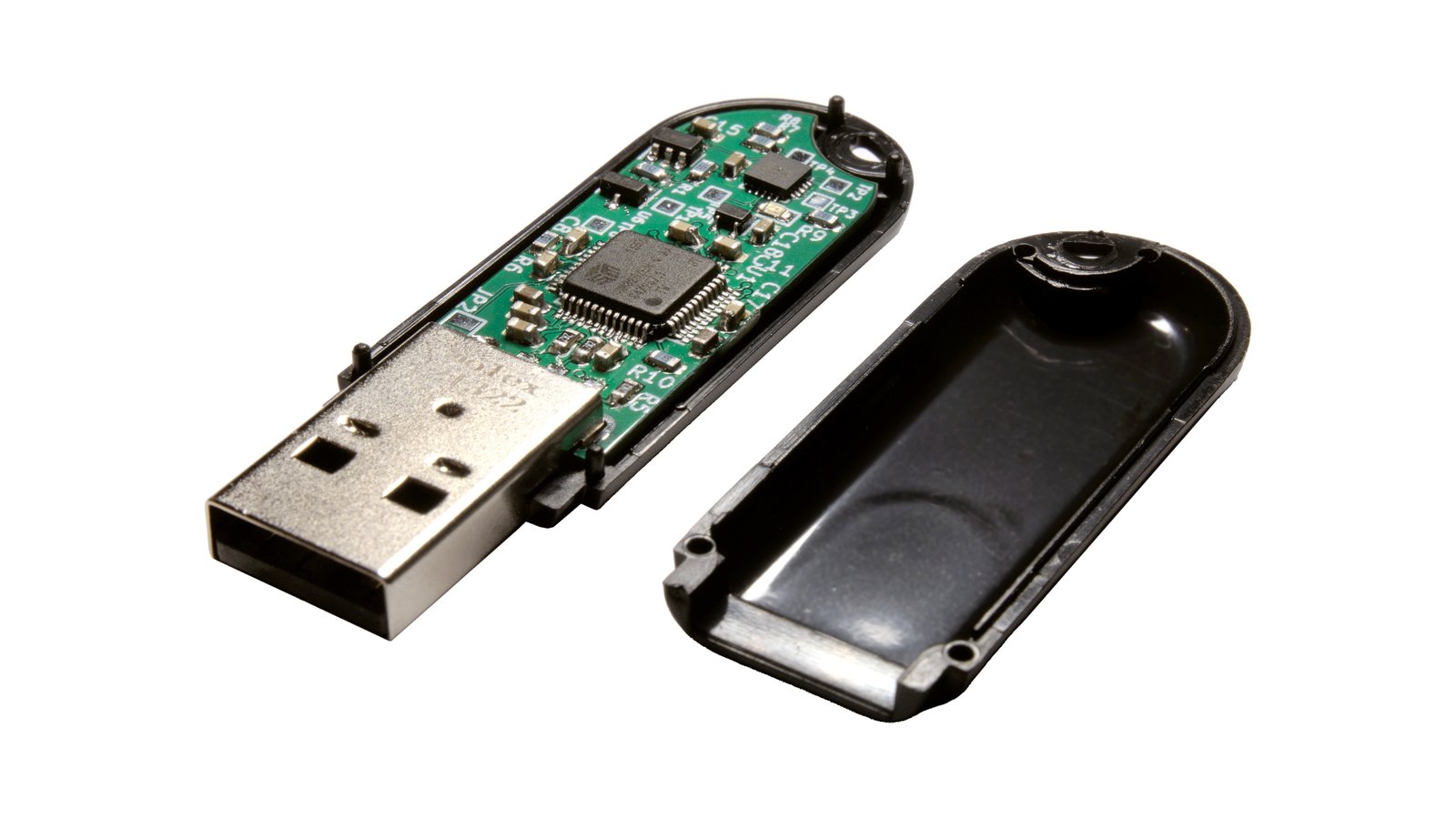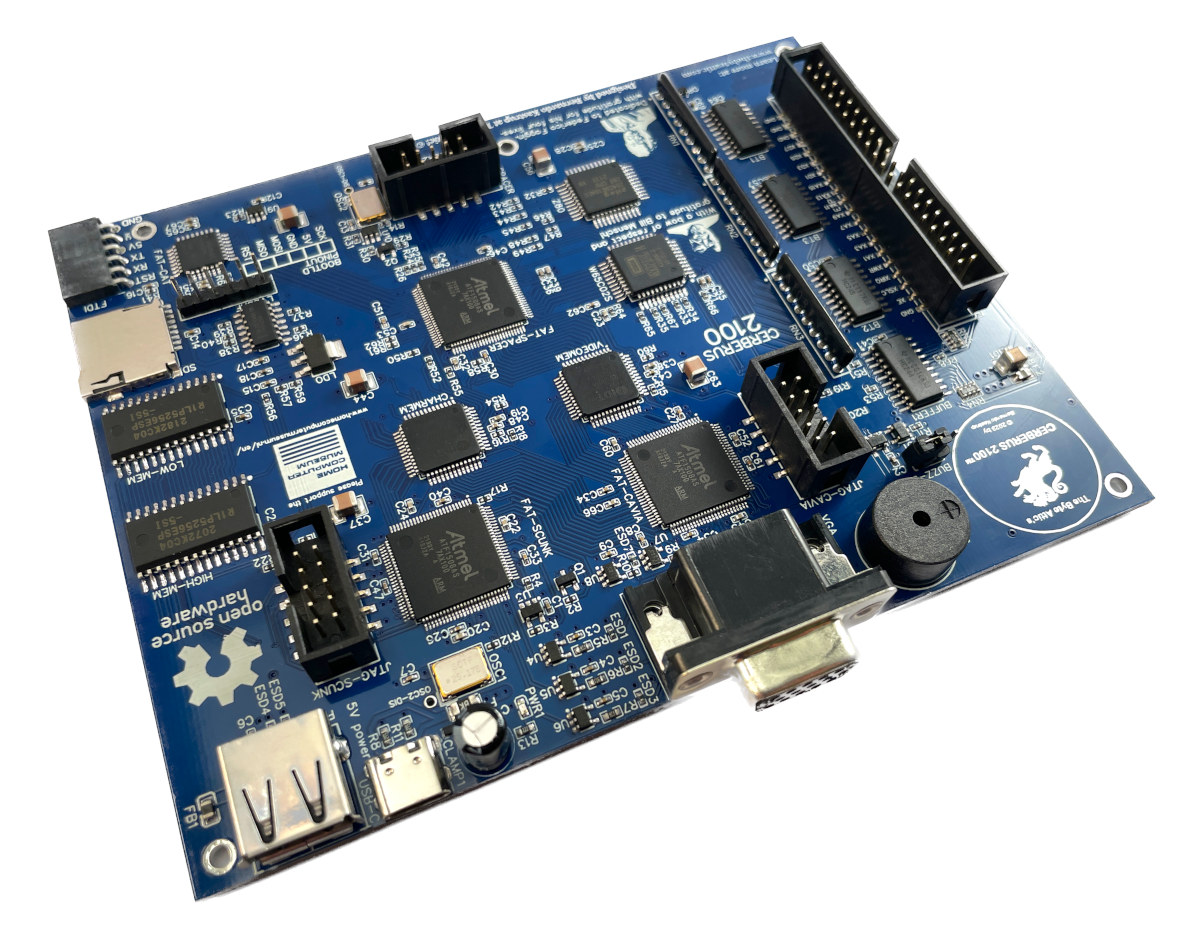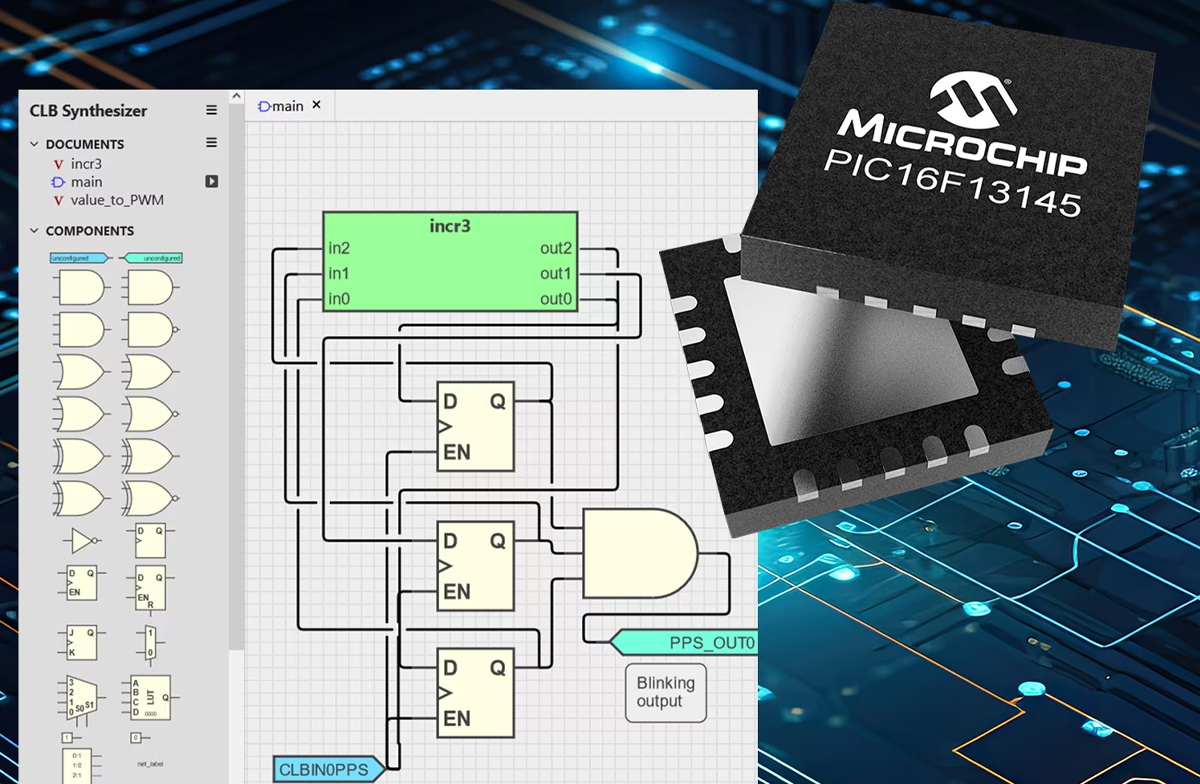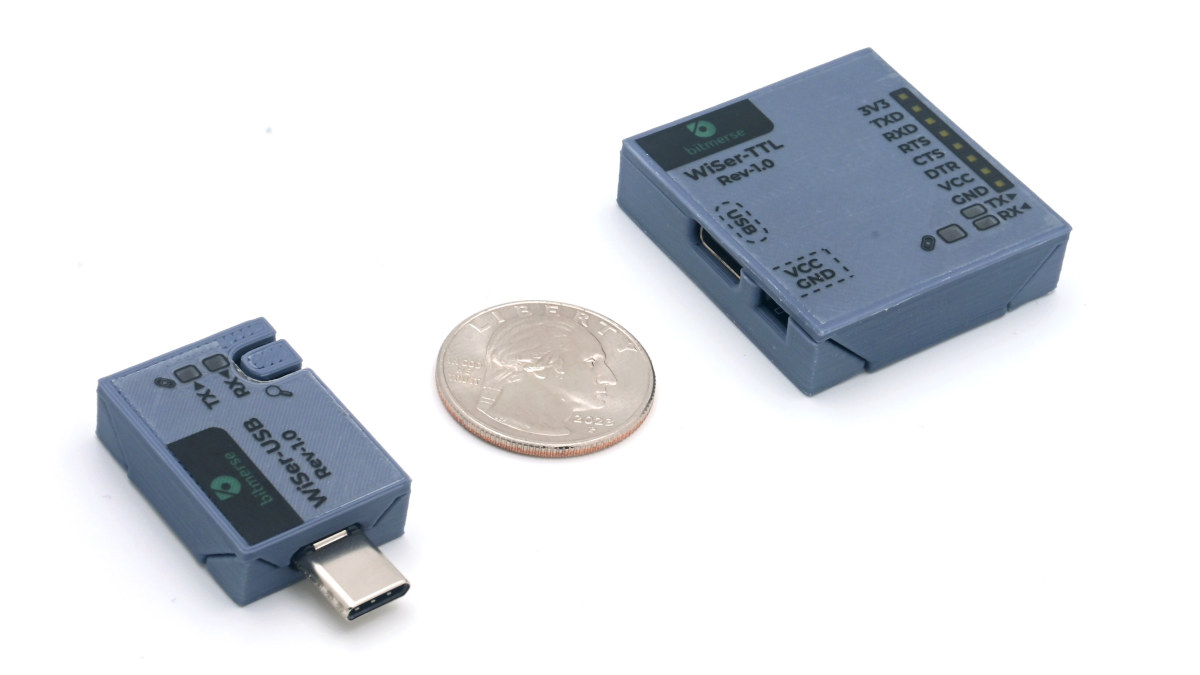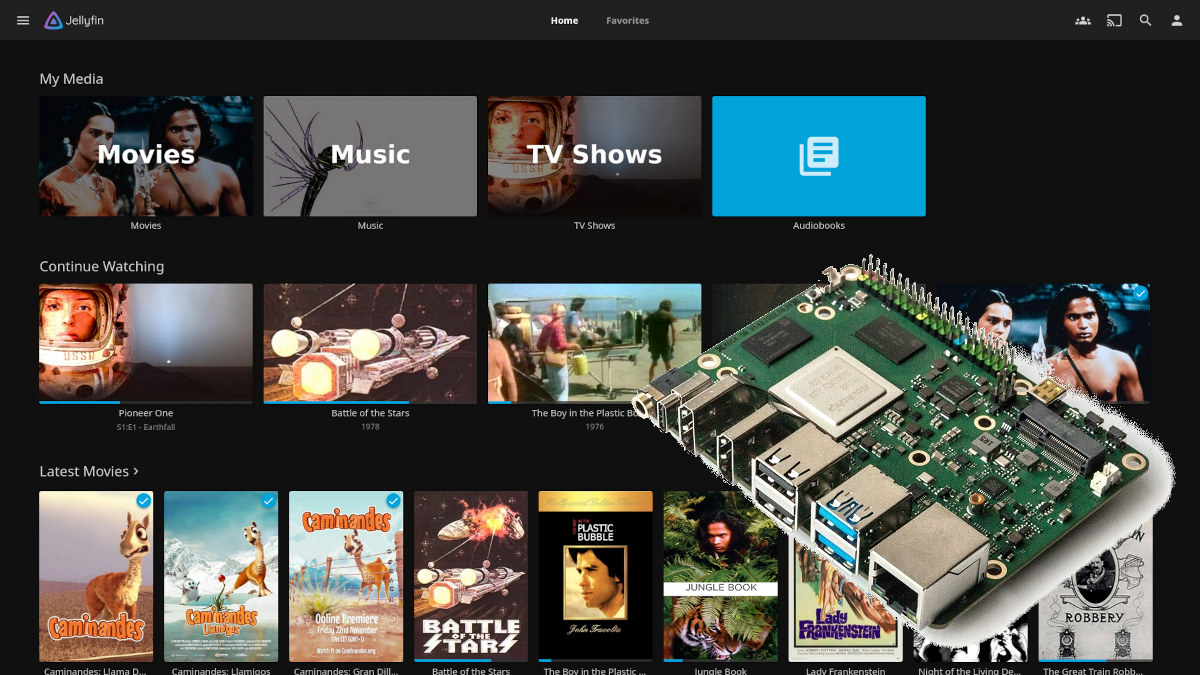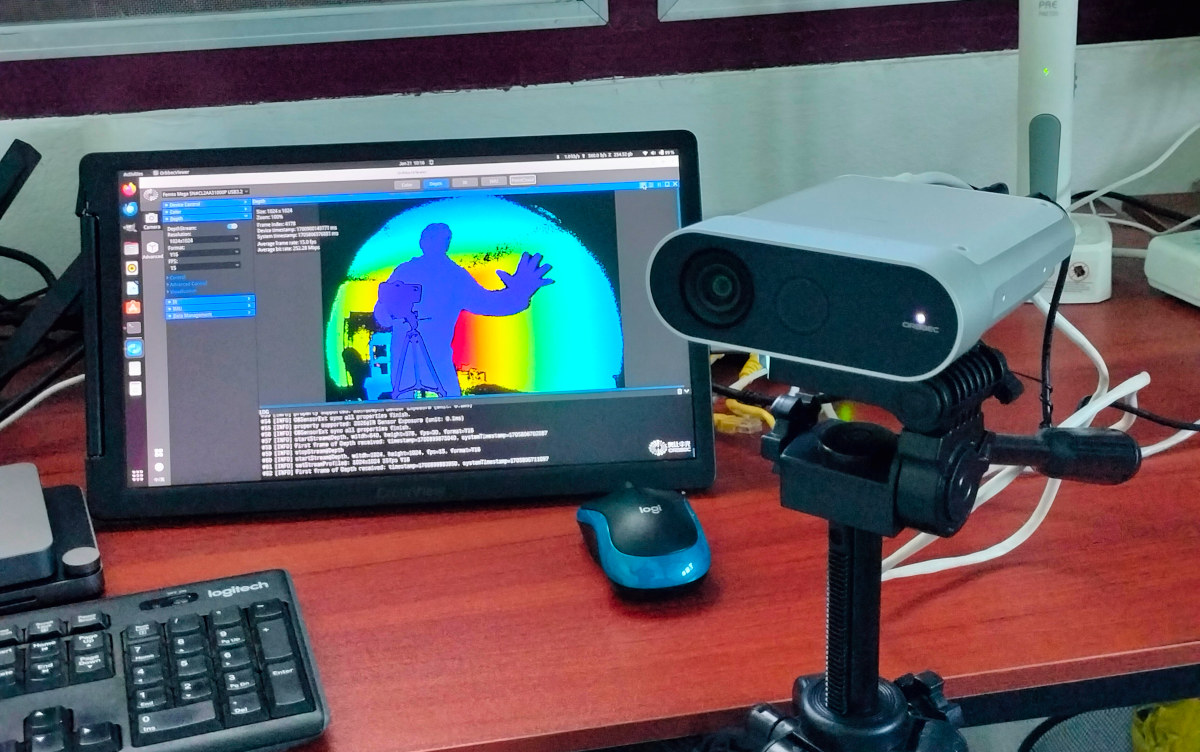SparkFun has launched yet another ESP32-C6 board with the “Thing Plus – ESP32-C6” based on the ESP32-C6-WROOM-1-N16 module with 16MB flash and a PCB antenna and range of I/Os and power options. The board features 28 through holes with up to 23 multi-function GPIOs and a Qwicc connector for expansion, and supports 5V or LiPo battery power through respectively a USB-C port a 2-pin JST connector combined with a charging chip, and a fuel gauge. SparkFun Thing Plus – ESP32-C6 specifications: Wireless module – ESP32-C6-WROOM-1-N16 MCU – ESP32-C6 32-bit single-core RISC-V microcontroller with 2.4 GHz WiFI 6, Bluetooth 5 LE, and 802.15.4 radio (Zigbee and Thread); Matter-compatible Storage – 16 MB flash PCB Antenna Storage – MicroSD card slot USB – 1x USB Type-C port for power and programming Expansion 12-pin + 16-pin headers with 23x multifunctional GPIOs Up to 7x 12-bit ADC channels Up to 2x UART channels (with […]
Ovrdrive USB is an open-source, privacy-oriented USB flash drive that can self-destruct (Crowdfunding)
We have previously covered the Tillitis Tkey, an open-source security key in a USB-C case but the Ovrdrive USB stick is not a security key. It is a simple, plain USB flash drive with a special security feature. It will appear completely blank unless you plug this drive in three times in quick succession. The Ovrdrive flash drive is aimed at journalists in repressive areas and security researchers but may be useful to other security and open-source hardware enthusiasts. As for how it works, the Ovrdrive has two identical circuits connected to the ATtiny24A microcontroller that controls the rapid plug-in functionality. When the flash is plugged in, the microcontroller powers on, and the CHG1 node goes high, charging C3 through D2. The pin will remain high for a while and then slowly discharge via R1 and body resistance. C3 and the identical C14 will remain high through power cycling/a quick […]
CERBERUS 2100 is a BASIC-programmable educational board with Z80 and 6502 8-bit CPUs
Olimex has just announced the launch of the CERBERUS 2100 open-source hardware, educational, multi-processor 8-bit computer with both Z80 and 6502 CPUs, as well as a Microchip AVR processor serving as an I/O controller. The CERBERUS 2100 features several CPLD and is fully programmable from the lowest level (individual gates and flip-flops) up to BASIC interpreters running on the Z80 and 6502 CPUs. Olimex did not design this themselves as the hardware design is from Bernardo Kastrup (aka TheByteAttic), while BASIC interpreters were written by Alexander Sharikhin (6502) and Dean Belfield (Z80). CERBERUS 2100 specifications: Processors Zilog Z80 8-bit microprocessor at 4 or 8 MHz (user selectable) Western Design Center W65C02S 8-bit microprocessor at 4 or 8 MHz (user selectable) “FAT-CAT” (Custom ATmega328pb) Microchip 8-bit AVR ATMega328PB microcontroller at 16 MHz CPLDs (ATF1508AS-7AX100) FAT-SCUNK (Scan CoUNter and clocK) and FAT-CAVIA (ChAracter Video Adapter) for video circuit connected to a 25.175 […]
ODROID-M1S review – Part 2: Ubuntu 20.04 benchmarks and features testing
Over one month has passed since our unboxing and quick Ubuntu 20.04 testing of the ODROID-M1S SBC and we’ve now had time to test more features and run benchmarks using the official Ubuntu 20.04.6 LTS release from Hardkernel. One user mentioned Ubuntu 22.04 is supported, but that’s supported by a third party and we used the official image for testing.
Our test results will show the performance and supported features of the Rockchip RK3566-powered ODROID-M1S SBC when running Ubuntu 20.04. Read on to find out how well the board works.
ODROID-M1S benchmarks
Let’s start benchmarking the ODROID-M1S with Thomas Kaiser’s sbc-bench.sh script:
Microchip introduces PIC16F13145 Series MCUs with customizable logic
Microchip recently introduced the PIC16F13145 series of 8-bit MCUs featuring a Configurable Logic Block (CLB). This allows users to create custom hardware-based logic functions within the MCU. This approach lowers the BOM costs and boosts performance. Last year, we saw Microchip introduce PIC32CZ Arm MCU with a Hardware Security Module (HSM) and before that, we saw they launched LAN8650/LAN8651 10BASE-T1S single-pair Ethernet Controllers. Feel free to check those out if you are interested in the topics. Microchip PIC16F13145 Series MCU Specification: 32MHz PIC16 CPU core Up to 1KB User SRAM for application data Up to 14KB Flash memory with code protection features CLB Capabilities: Up to 32 basic logic elements – AND/OR/NAND/NOR gates, buffers/inverting buffers, D/JK flip-flops, multiplexers, 4-input LUT Dynamic configuration for on-the-fly changes Tri-state logic capability Inputs/outputs from software, I/O pins, and PIC® peripherals (ADC, PWM, DAC, etc.) Less than 6 ns BLE propagation delay at 5.5V (typical) […]
Wiser wireless-to-serial kit eases the debugging and programming of embedded devices (Crowdfunding)
WiSer is a wireless-to-serial communication kit comprised of a USB dongle (WiSer-USB) and a USB TTL debug board (WiSer-TTL) – both built around an ESP32-S2 microcontroller – that allows users to establish a P2P wireless connection between a host computer and a development board or sensor. It works like a typical USB to TTL debug board except it operates over WiFi, and it’s especially useful to debug code, update firmware, log data, or transfer files without a USB cable or even a Wi-Fi router since the connection to peer-to-peer. It looks especially useful when the host and DUT are too far apart, and my review samples are often on another table around 1.5m from the nearest USB port of my laptop, so I could see some use for it myself… WiSer specifications: Wireless SoC – ESP32-S2 Wi-Fi (and Bluetooth) microcontroller USB – 1x USB Type-C port providing a virtual serial […]
JellyFin adds support for Rockchip RK3588 MPP hardware acceleration
Jellyfin open-source media server has recently added support for Rockchip RK3588 MPP hardware acceleration, which means the software supports video hardware decoding and encoding, hardware scalers, and other features. The GitHub request lists the following changes: Add full HWA transcoding pipeline for Rockchip RKMPP HW decoder (MPEG1, MPEG2, MPEG4, H264, HEVC, VP8, VP9, AV1) HW encoder (H264, HEVC) up to 1080p @ 480fps / 4k @ 120fps on RK3588 HW scaler, format conversion, and subtitle burn-in HW HDR-to-SDR tone-mapping (requires OpenCL, RK3588 only) The OpenCL runtime can be downloaded and installed from libmali-valhall-g610-g13p0-x11-wayland-gbm_1.9-1_arm64.deb Support lossless AFBC (Arm frame buffer compression) to save memory bandwidth and improve FPS Support async RGA filter and MPP encoder If indeed decoding and encoding can be performed simultaneously, that would mean video transcoding can be offloaded to the Rockchip RK3588’s VPU. The changes has been tested with Linux 5.10 and Linux 6.1, but do not […]
Femto Mega 3D depth camera review – OrbbecViewer and Orbbec SDK in Ubuntu 22.04, body tracking in Windows 11
We had a quick look at the Orbbec Femto Mega 3D depth and 4K RGB camera at the end of last year with a look at the hardware and a quick try with the OrbbecViewer program in Ubuntu 22.04. I’ve now had the time to test the OrbbecViewer in more detail, check out the Orbbec SDK in Linux and various samples, and finally test the Femto Mega with a body tracking application using Unity in Windows 11. A closer look at OrbbecViewer program and settings As noted in the first part of the review, the OrbbecViewer program provides color, depth, and IR views for the camera. Let’s go into details for each. The Color mode would be the same as your standard USB color camera. The Femto Mega supports resolution from 1280×720 at 30 fps to 3840×2160 at 25 fps using MJPG, H.264, H.265, or RGB (converted from MJPG). We […]


